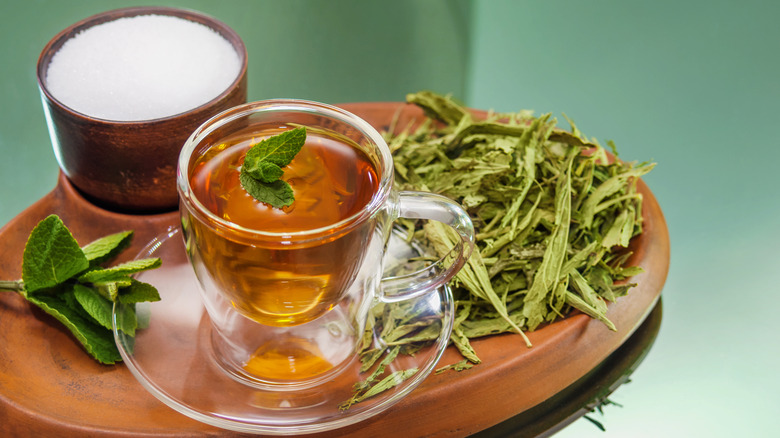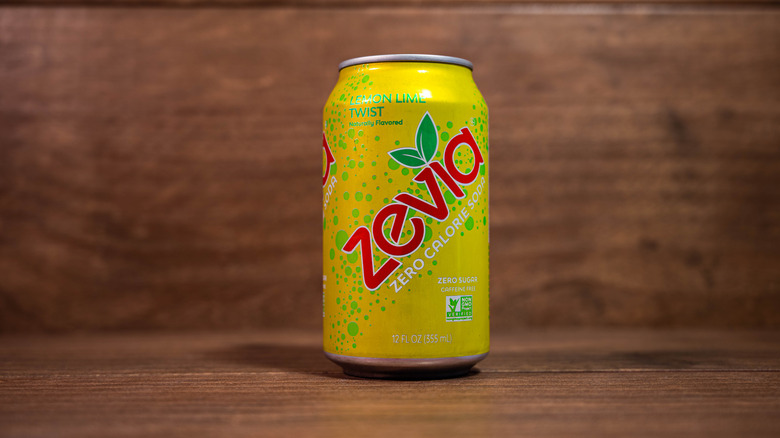Is Stevia Bad For You?
Stevia is a natural sugar substitute derived from the leaves of the Stevia rebaudiana plant (via Healthline). Scientifically known as rebaudioside A, or Reb-A, Stevia is a sugar-free sweetener that is actually 200 times sweeter than regular table sugar. While Stevia is also technically classified as a no-calorie sweetener, it is actually nonnutritive, which means that it contains almost no calories. Available in liquid, powder, or granulated form, Stevia can be used to sweeten any beverage or food product without adding any extra sugar or carbohydrates.
As a result, Stevia's popularity has grown exponentially within the last few years, but is it actually good for you? According to the U.S. Food and Drug Administration (FDA), Stevia is generally considered safe. However, this classification does not apply to whole-leaf Stevia or crude Stevia extracts, which are less refined. This also doesn't mean that Stevia is completely free of side effects. For instance, Stevia products made with sugar alcohols may cause digestive issues like bloating, gas, or diarrhea.
Potential health benefits of Stevia
However, Stevia is also associated with a number of potential health benefits. Since Stevia is sugar-free and extremely low in calories, eating or drinking it may lower your blood sugar levels (via Medical News Today). Studies have found that Stevia has no known effect on blood glucose or insulin levels, which can be beneficial to people with Type 2 diabetes or those simply trying to limit their sugar intake. As such, it may also help you lose weight. That's because Stevia contains significantly fewer calories than sugar, which has long been linked to weight gain. While there is no guarantee that consuming it will help you lose weight, replacing sugar with Stevia can contribute to a well-balanced diet, which, combined with a regular fitness regimen, may eventually lead to weight loss over time.
Furthermore, Stevia is very unlikely to cause an allergic reaction. According to the European Food Safety Committee (EFSA), Stevia is not reactive or metabolized to reactive compounds, which means that its potential to trigger an allergic reaction is extremely low. In fact, there have been no reported cases of allergic reactions to Stevia since 2008.


